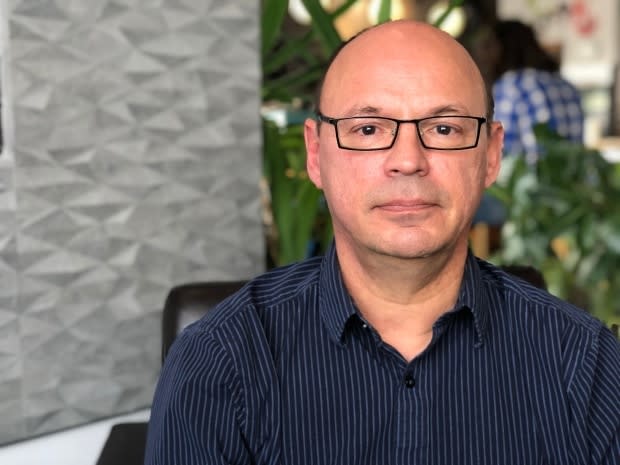Foundation hopes funding cut to high school co-op program just 'a blip'
A Kemptville, Ont., student is lamenting the loss of funding for an online co-op program that aims to give high school students a competitive advantage in science and engineering research.
Each year, the Foundation for Student Science and Technology's program pairs around 100 students from across Ontario with science, technology, engineering, arts and math researchers around the world.
Ontario's health ministry been providing funding for the past six years, but recently announced its funding would end Feb. 28. The foundation continued accepting applications for the winter semester, however, with the hope the government would change its mind.
"Honestly, I cried when I found out. It was just so sad," said Mairi Hallman, 17, a Grade 12 student at St. Michael's Catholic High School who'd applied last fall.
"We need programs like this, and the ministry just doesn't seem to realize that."

Hallman was paired with a supervisor who works at a protein sequencing company out of Guelph, Ont., to work on research related to COVID-19 — a hot topic, as the contagious respiratory illness spreads around the world.
Students receive between one and two high school credits for taking the program. Hallman said she already has enough credits to graduate, but she knows other students who may end up being a credit short of getting their diploma.
"It just makes me really sad. It's another slap in the face to the education system in this province," she said.
Program 'phenomenal,' says director
The co-op program helps prepare students for the workforce, giving them early insight into scientific research, said Jacques Guerette, the foundation's executive director.
It started in 2014 as a pilot project, and now operates in around 150 schools across Ontario.
"Imagine you're a smart kid, living in a very small town in let's say, Northern Ontario, and you're connected to a scientist, [an] expert in Brazil, to talk about all of the things that are really important to you. I mean, how phenomenal is that?" he said.
Guerette believes the program ticks all the government's priority boxes: it's online, is a STEM program, doesn't cost much to run, and has proven its success.

It's also important, he said, to find and develop bright Ontario students, in the hopes of keeping them in Canada and not losing them one day to other countries.
"What I'm hoping, to be honest, is that this is a blip because of the nature of the government's funding cycle," he said.
Funding never guaranteed
In the past, the program has received up to $180,000 a year, which Guerette said covers the program director's salary, software licences, and various other administrative and marketing costs.
In an email to CBC Ottawa, Ministry of Education spokesperson Ingrid Anderson said the province never agreed to fund it beyond the fall semester.
"Therefore, this is a surprise to no one. We will continue to invest in STEM education working to drive student success through organizations that are well equipped to spend within their fiscal boundaries," she wrote.
Guerette said the foundation was invited to submit a new funding proposal for the winter and summer semesters, but wasn't told until last week that funding was denied.
He still hopes to get provincial dollars in the future, possibly after the next budget is passed.
"Am I optimistic? Yes I am, you know, because, you know, I have to believe that reasonable people are looking at this."


